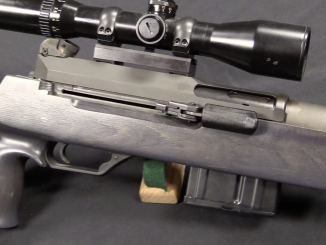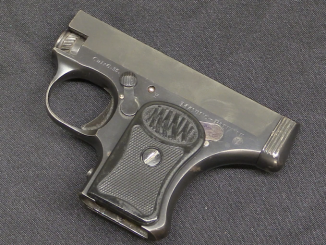Leonard and Guy A-R-West have released the second book in their series on antique military rifles, this time on the Dreyse system. As anyone interested in the Dreyse has probably already learned, there is very little written in English about them, and this book a welcome addition! It includes an engaging history of the military use of the various Dreyse arms by the different German states, a series of overviews of the different Dreyse models, and plenty of additional information about accessories. As the West brothers are also avid shooters, the book includes plenty of material about the proper construction of cartridges for the system and shooting impressions from a variety of different models.
As with their previous book on the Chassepot, this volume is illustrated with a mixture of photographs and painting done by the authors. Cutaway images are used well to illustrate the mechanical differences between models, and overall the book is an excellent reference guide to the system for shooters, collectors, and historians alike.
Available direct from the publisher for £45.




Thank you for taking the time to share these informational pieces. So much history to absorb!
The Dreyse was not used by all german states, bavaria for example adopted the Werder in 1869 instead. The Werder was, by the way, the best rifle of the franco-prussian war of 1870/71.
Befor 1866, most military authorities jugded it just as too complicated for field use.
If my memory isn’t playing tricks on me, wasn’t the Werder using a rimmed brass centerfire cartridge in 11 x something ? Quite advanced for its day indeed. And didn’t the Bavarians rechamber these rifles to use the slightly longer 11 mm cartridge used in the Mauser m/71 that was adopted to replace the Dreyse et all ? Pretty farsighted choice, especially as this rifle remained in Bavarian use until replaced by the Gewehr 1888. Quite nice considering the rate of technological advance in firearms during the period.
“(…)11 x something(…)”
11.5×50 R http://municion.org/11/11_5x50RWerder.htm
Bavaria had very few Werder rifles, less due to complexity (it was a variant of the Peabody), than economic factors (i.e., the Bavarian government just couldn’t afford a lot of them). The primary Bavarian rifle of the period was the Podewils;
It looks like this;
http://www.fototime.com/photos/st/2B6F31455DB245B6ACDA7FA6BC534626/22407490.jpg
Note the left-handed bolt, needed to clear the percussion lock.
In many respects, the Lindner/Podewil resembled the British Calisher and Terry capping breechloader;
https://en.wikipedia.org/wiki/Calisher_and_Terry_carbine
http://shipwrecklibrary.com/wp-content/uploads/Terry_Patent-1024×614.png
In fact, the Lindner/Podewils conversion could be defined as a combination of the Calisher-Terry and Dreyse systems.
Bavarian 13.9mm muzzle-loaders were imported and issued by both the Union and the Confederacy during the American Civil War. British-made Calisher and Terry carbines were used by cavalry on both sides, as well.
cheers
eon
I thought most Royal Bavarian troops in the Franco-Prussian War were still carrying the Podewils-Lindner?
Thanks eon! Based on your thorough reply I got to look it up… Only Jägers in the royal Bavarian army had the Werder–admittedly, a very interesting arm. The vast majority of line infantry und so weiter did have the Podewils-Lindner “capping breech-loader.” Thanks for the links!